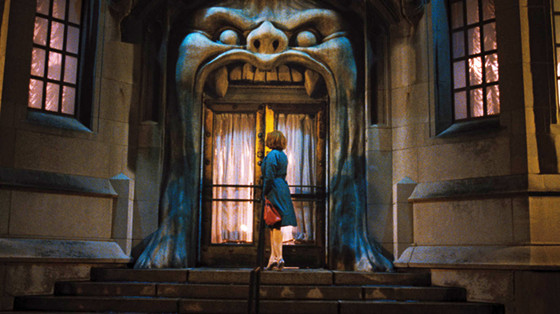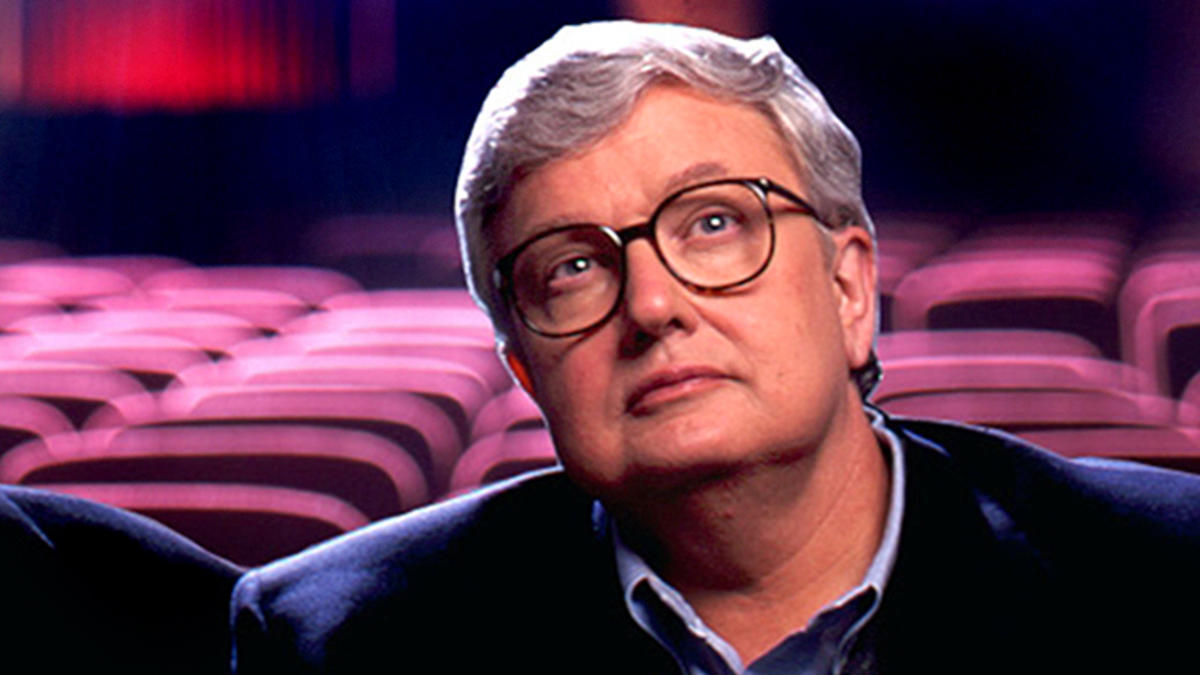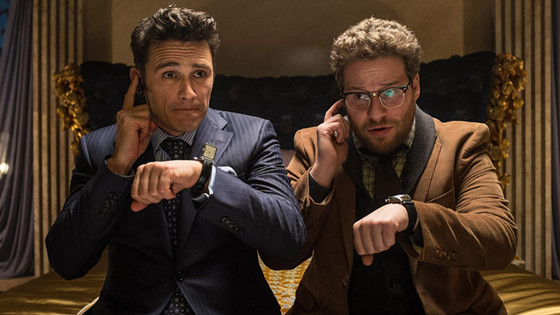10. Ask Me Anything (2014)
The significance of writer/director Allison Burnett’s film being on this list is due to its current insignificance. It is an example of a truly lost and abandoned film in the digital age. No one knows much about it, and all they have to tell them is a misleading poster that presents the film as a generic teenage sex romp.
The truth couldn’t be farther from this misconception (and misrepresentation), however, as Ask Me Anything is a mature and insightful film made for adults that men can get just as much out of as women (in other words, it’s not the obnoxious chick flick the poster promises us it will be).
What little press and public knowledge you can currently find about Ask Me Anything all centers around an interesting bit of information (and tells us why it’s release was so careless): lead actress Britt Robertson refused to promote it for reasons unknown, and the entire publicity campaign planned by its distributor was scrapped. The film was subsequently dumped and essentially left for dead.
Robertons’ performance, which won her a best actress award at the 2014 Nashville Film Festival, is an extraordinarily skilled and complicated work that will follow her throughout her (predictably long) career. She’s a fantastic talent, and so far the only film to fully showcase that is curiously the film she seemingly doesn’t want you to see.
Ask Me Anything is a smart, complicated piece of filmmaking that is sophisticated, resonating, and layered. It’s careful and mature in what it is saying, but is not afraid to say it very boldly. It’s also a sad example of how easily present-day film stars can neglect their privilege and (intentionally or not) hinder the awareness of some of their better films. Ask Me Anything is a film that has staying power, that could have been an instant classic, but will inevitably and eventually have to settle on becoming a cult one.
9, 8. Lost River (2014), Only God Forgives (2013)
Ryan Gosling, the man so good –looking and charismatic onscreen that he makes heterosexual men doubt themselves, appears to be more interested in creating challenging works of art than basking in the glow of studio-friendly lights.
The man who claimed he moved to Hollywood as a teenager to meet David Lynch is a true wolf in sheep’s clothing. He may look and act like the boy next door your mother would sell you to have sex with, but he’s actually a morbid little weirdo in disguise who wants to make really disturbing, but beautifully-made fringe films.
Gosling stars in Drive auteur Nicolas Winding Refn’s Only God Forgives, a film that feels unreal in the fact that it was even made. Very modestly budgeted, it is a challenging, violent, surrealistic crime drama that touches on themes rooted in Greek tragedy, from envy to revenge to incest. It is a wholly singular experience that (though very limitedly released in theatres simultaneously) feels like it was made for VOD. It’s just too strange, too bonkers, and, ultimately, too good to be seen in public these days.
Lost River, which Gosling wrote and directed but didn’t act in, makes the impossible possible: it is even more bizarre and head-scratching than Only God Forgives. Part moving family drama, part teenage romance, part Lynch, part Malick, part horror, part violent revenge fantasy, part haunted house of perversion…
Gosling’s film is, if nothing else, a very admiration-worthy experiment of tonal shifting. If viewed through the right eyes, however, the film is an overall successful and intermittently brilliant first effort from a heartthrob who may very well be more interesting in dissecting your body than sweeping you off your feet. Like Only God Forgives, Lost River is the perfect vehicle for modern-day VOD, as it is far too out of its mind to comfortably be experienced in the presences of strangers.
7, 6. Montage of Heck (2015), Soaked In Bleach (2015)
These two documentaries about famed Nirvana lead singer/songwriter Kurt Cobain both premiered online this year. One is “official”, approved and guided by those who still control the rights to Cobain’s work (Montage of Heck). The other (Soaked In Bleach) gives an alternate point of view to everything we think we know about Kurt Cobain and his supposed 1994 suicide.
The online world has proven to be a great venue to quickly circulate both films: Montage of Heck had all kinds of mainstream media attention and backing from the get-go, but Soaked In Bleach’s less popular point of view has proven to benefit greatly from word-of-mouth and easy availability that the online world provides.
Soaked In Bleach, the smaller project made by an unknown filmmaker (Benjamin Statler), has managed to successfully use today’s market to combat the legitimacy of Heck, in spite of that film being backed by big money and famous last names
To be fair, Montage of Heck is undeniably a major artistic accomplishment, and director Brett Morgen should be commended for his skill and creativity. It captures Cobain’s artistic genius voice better than anything written or assembled before.
It takes private home videos, public footage, diary entries, and hours of private audio recordings, then mashes them together with expressionistic editing techniques, graphics of his visual artwork, and beautifully animated sequences to present various early periods in Cobain’s life. To complete the package, it’s all scored to various (and often never-before-heard) audio recordings of Nirvana’s work over the years.
In short, Montage of Heck is every depressed nineties kid’s dream come true. From a filmmaking standpoint, it is a beautiful, earnest piece of work that deserves recognition and tries very hard to give fans a “real man behind the fame” look at Cobain’s life. Where it fails, unfortunately, is in having much of a point other than romanticizing and reviving a toxic legacy with its very (possibly naïve) existence: a troubled young man from a broken home finds solace in his art, only to become wildly successful and famous, turn to drugs, and ultimately commit suicide.
Soaked In Bleach intelligently questions that very legacy and examines quite convincing evidence to support the theory that Cobain’s death was a murder and not a suicide as widely (and far too quickly) reported. There are many details to this side of the story, which is largely told from the point of view of a private detective named Tom Grant.
Grant was hired to search for Cobain shortly before his body was discovered, and his side of the story is presented with skill and artistry in Soaked in Bleach. Simply stated, the film is the perfect antithesis to Montage of Heck for reasons you’ll just have to see, and is a fascinating analysis of how far media manipulation can potentially go in influencing the decisions of people who should know much better.
It’s important to state that it’s cruel to point fingers or to make assumptions about either argument for the billions of us who weren’t there. However, there are simply too many questions raised by Soaked In Bleach for anyone who has seen it to possibly ignore. Until they are answered, all we should remember about Kurt Cobain is the quality of work he left behind with the intention of being released.
Other than that, there probably shouldn’t be any more assumptions about his life or death until some of the people behind Montage of Heck do some very serious explaining. In the end, we must remember with a grain of salt that neither film is ultimately anyone’s business but the one man they are centered around and who is sadly, for whatever reason, no longer here to speak for himself.
5. Life Itself (2014)
The full life (and final, painful moments) of the late, great film critic Roger Ebert are chronicled in this outstanding documentary from Hoop Dreams filmmaker Steve James. The fact that it was simultaneously given a theatrical and online release was just the right amount of momentum this documentary needed to reach its niche (but devoted) audience.
Experiencing it at home gives it an intimacy and attention you don’t quite pick up on with the distractions of a crowded theatre. However, there probably wasn’t a more fitting goodbye to your favorite film critic than sitting with an audience and hearing their reactions to an entire movie dedicated to and starring the man himself.
4. Snowpiercer (2014)
This is one of the major success stories to date for a film to be simultaneously released online and limitedly in theatres. Critics loved it for being a smart, alternative action/science fiction film that was just as adept in delivering thrills as it was in delivering intelligent ideas and astute social satire. Snowpiercer is the kind of movie that, in a perfect world, would be a summer blockbuster (it has all the set pieces of a Marvel movie, but also has moments that would make Terry Gilliam tear up with pride).
It was a solid (if not outstanding) success in both venues. For such a challenging and unique film to make its way to mass audiences today (aided by its action film roots and by Captain America star Chris Evans’ presence) is no small feat, and it’s nothing short of a positive sign that it was at least met with a sizable roar of applause.
3, 2. To The Wonder (2013) and The Zero Theorem (2014) (tie)
Terry Gilliam and Terrence Malick are two of the last true auteurs standing. They are both uncompromising visionaries (with wholly different styles) whose work is often too challenging to find a mass audience, and always too grandiose and brilliant to be experienced any other way. This is why today’s online distribution world is simultaneously a blessing and a curse for them both.
Both Malick and Gilliam are old school filmmakers who make films that are designed to be seen on a movie screen. No one will ever know the true experience of any of their works until they see them on the scale both filmmakers imagined. The audiences their films are intended for (the members looking for something different, complex and artistically accomplished) are all turning to television these day, however. While the effects of both filmmakers’ work are not completely lost, they certainly are somewhat dampened on smaller screens.
On the upside, it’s wonderful seeing these two filmmakers working regularly (or, with Gilliam’s recent Amazon deal, looking forward to seeing) and getting their films out to the world uncompromised. Another positive is that both The Zero Theorem and To The Wonder were given simultaneous (though very limited and hard to find) theatrical releases for purist fans of the two who truly wanted to experience their works as intended.
Filmmakers of Gilliam’s and Malick’s scale need audiences to fund their visions. Their refusal to compromise, however, limits them to the kinds of audience members who will continue seeking them out. Such audience members are out there, it’s just a matter of reminding them that two of their favorite filmmakers still are, as well.
The online world is both a place for them to be (re)discovered, and a place for them to get lost. Time will tell which side they fall on, but fans of Gilliam and Malick can only hope for the best while continuing to seek out of their films in the best venues possible.
1. The Interview (2014)
This is not the best film on this list. In fact, it’s not even a particularly good film. The Interview is basically a moment in time that catches some very talented people (Seth Rogen, Evan Goldberg, James Franco) on the downward slope of exploring a formula that had all but worn completely thin by the time they finished making it.
While it has flashes of hilarity and brilliance, The Interview is ultimately a tired take on the violent stoner/drunkard buddy humor that made Pineapple Express and This is the End such masterpieces of the genre they all helped create (taking a cue from Simon Pegg, Nick Frost, and Edgar Wright, of course) and revitalize for the twenty-first century.
So, why, then, is it number one on this list? Because we $&#%$ing almost went to war over this piece of crap, that’s why. Less than a year after all the controversy, it’s so easy to forget: people wanted to bomb American movie theatres because a film filled with advanced potty humor happened to paint their world leader as a childish psychopath with daddy issues who couldn’t control his bowels when he was really upset…
Okay, so that part was funny.
When it’s planned theatrical released was pulled out of fear of terrorist threat (and quite possibly the full ramifications of the infamous “Sony hack”), everyone from Clooney to Obama slammed Sony for cowardice, and the happy medium was to make the film available on VOD Christmas Eve of 2014.
The rest, as they say, is history and will most likely be all but gone from public consciousness in another year or two. Let us not forget The Interview: proof that even the worst movies (save for those taken from their creators) deserve to find their time online, because ultimately if they reach just one person… It could still destroy an entire nation.
Author Bio: Matt Hendricks is an independent filmmaker with several projects currently in development.






